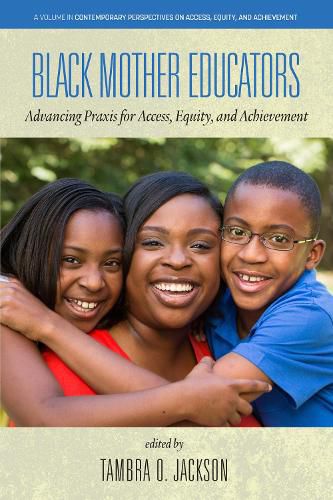Readings Newsletter
Become a Readings Member to make your shopping experience even easier.
Sign in or sign up for free!
You’re not far away from qualifying for FREE standard shipping within Australia
You’ve qualified for FREE standard shipping within Australia
The cart is loading…






This title is printed to order. This book may have been self-published. If so, we cannot guarantee the quality of the content. In the main most books will have gone through the editing process however some may not. We therefore suggest that you be aware of this before ordering this book. If in doubt check either the author or publisher’s details as we are unable to accept any returns unless they are faulty. Please contact us if you have any questions.
Drawing upon the theoretical frameworks of Beauboeuf-Lafontant (2002), Collins (2009), Crenshaw (1991), and Dillard (2012), this volume makes a case for centering the voices and experiences of Black women in the protection and educational uplift of Black children. While examinations of how Black educators articulate and enact a need to protect Black students from racialized harm exist (McKinney de Royston et. al., 2020), this book is a collection of autoethnographic narratives from Black mother educators who work at the intersections of their personal and professional identities to protect Black children. Intersectionality allows us to look at the nexus of our identities in regards to race, gender and occupation– as Black, women and educators. Our goal for this volume was to bring together scholars who can support theorizing the intersectionality of our identities as Black mothers and educators, particularly its influence on our pedagogical practices and the safekeeping of Black children. This volume explicates stories of motherwork from Black mother educators whose professional spaces span K-12 to higher education contexts. Collectivity, this volume expounds upon the dimension of protector within the literature on Black women teachers.
$9.00 standard shipping within Australia
FREE standard shipping within Australia for orders over $100.00
Express & International shipping calculated at checkout
This title is printed to order. This book may have been self-published. If so, we cannot guarantee the quality of the content. In the main most books will have gone through the editing process however some may not. We therefore suggest that you be aware of this before ordering this book. If in doubt check either the author or publisher’s details as we are unable to accept any returns unless they are faulty. Please contact us if you have any questions.
Drawing upon the theoretical frameworks of Beauboeuf-Lafontant (2002), Collins (2009), Crenshaw (1991), and Dillard (2012), this volume makes a case for centering the voices and experiences of Black women in the protection and educational uplift of Black children. While examinations of how Black educators articulate and enact a need to protect Black students from racialized harm exist (McKinney de Royston et. al., 2020), this book is a collection of autoethnographic narratives from Black mother educators who work at the intersections of their personal and professional identities to protect Black children. Intersectionality allows us to look at the nexus of our identities in regards to race, gender and occupation– as Black, women and educators. Our goal for this volume was to bring together scholars who can support theorizing the intersectionality of our identities as Black mothers and educators, particularly its influence on our pedagogical practices and the safekeeping of Black children. This volume explicates stories of motherwork from Black mother educators whose professional spaces span K-12 to higher education contexts. Collectivity, this volume expounds upon the dimension of protector within the literature on Black women teachers.